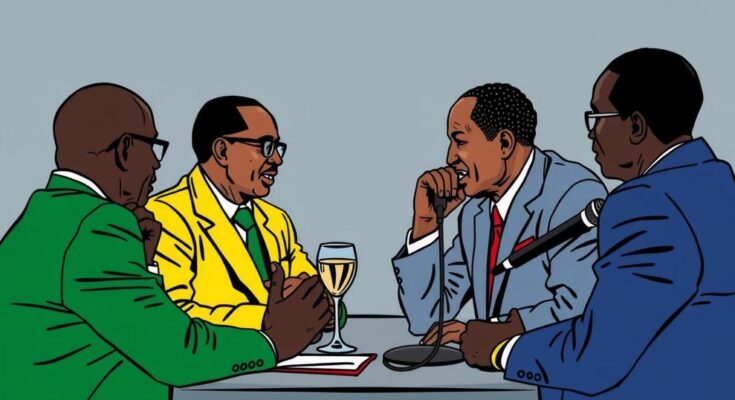Guinea Bissau’s planned legislative elections on November 24 will not proceed as the country lacks the necessary preparations, according to Minister Aristides Ocante da Silva. President Umaro Sissoco Embalo had dissolved parliament in December after violent clashes. The nation faces political instability, financial difficulties, and expired leadership within essential electoral bodies, challenging the pathway to conducting elections.
The Minister for Territorial Administration, Aristides Ocante da Silva, announced that Guinea Bissau is unable to proceed with the scheduled legislative elections on November 24 due to insufficient preparation. President Umaro Sissoco Embalo had previously dissolved parliament in December 2023 following violent incidents he characterized as an attempted coup. The upcoming elections have become entwined with the nation’s ongoing political turmoil. Embalo, who has been in office since December 2019, faced challenges from a coalition led by the African Party for the Independence of Guinea and Cape Verde (PAIGC), which secured a majority in the June 2023 elections. This situation has resulted in strained relations between the president and the opposition. Additionally, the expiration of key leadership positions in both the electoral commission and the Supreme Court further complicates the electoral process. Minister da Silva emphasized the logistical and financial obstacles hindering the preparations, stating, “Technically, we are not in a position to carry out the programme. The time available no longer allows us to do so because of the many logistical and financial difficulties.” As one of the poorest nations globally, Guinea Bissau’s struggles with funding the elections reflect broader issues of governance and stability. The country has a history of political upheaval since gaining independence from Portugal, and despite marginal advancements toward constitutional stability, challenges persist, particularly under Embalo’s controversial presidency.
Guinea Bissau has been a nation plagued by instability, characterized by repeated coups and political crises since gaining independence from Portugal. The current situation arises after President Umaro Sissoco Embalo dissolved parliament amid a backdrop of violence endangering the democratic order. The planned elections are intended to reaffirm the country’s democratic practices; however, significant challenges including financial constraints, lack of logistical support, and political fractures involving dominant coalitions hinder this aim. The PAIGC, historically opposed to Embalo, currently holds a majority, creating a tense political environment that complicates the electoral landscape.
The postponement of the legislative elections in Guinea Bissau highlights the multifaceted challenges of governance faced by the nation. With President Embalo’s term undergoing scrutiny and significant political divisions, there remains an urgent need for political stability and appropriate funding to ensure that democratic processes can proceed without obstruction. The continuing saga of Guinea Bissau’s political affairs serves as a reminder of the fragile nature of democracy in regions marked by historical instability.
Original Source: www.news24.com




